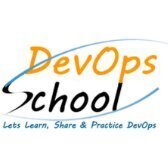Search the Community
Showing results for tags 'log management'.
-
Despite advances in the world of observability, log management hasn’t evolved much in recent years. Users are familiar with the experience of Kibana or OpenSearch Dashboards (OSD), but those don’t always meet modern use cases. Logz.io is ready to change the conversation with the introduction of Explore, the new path forward for Log Management for […]View the full article
-

log management What Is Log Management? A Complete Guide
TechRepublic posted a topic in General Discussion
Learn the basics of log management, including what logs are, what benefits they can bring, and what features to look for in a log management solution.View the full article -
At Google Cloud, we believe you should have full control over your log data. That's why we created the Log Router, which gives you the flexibility to choose which logs are stored in Cloud Logging, sent to other Google Cloud products like Cloud Storage, or even sent to your favorite third-party product. Customers tell us that this flexibility is really important, especially when managing log data from a large number of teams in their organization. Today we're announcing the general availability of our latest log sink destination: a Google Cloud Project, to provide greater flexibility for routing logs. Using a Google Cloud Project as a log sink destination lets you route logs from one project to the Log Router of another project, as though the logs had actually been received by the second project. This gives the team that owns the destination project a whole new level of control over these logs. What’s new?Up until now, you could route logs from one project directly only into the log bucket of another project. Centralizing logs directly in log storage is very useful for secops and audit purposes, but it means that the destination project has no control over these logs. Any processing in the destination project, such as logs-based metrics, real-time log based alerting, or log sinks does not apply to those logs. Using a project as a log sink destination changes this ownership model giving valuable controls to the team who owns the destination project: Increased insights — The team can create log-based metrics and log-based alerts from the logs that were routed directly to the destination project. Error Reporting will also work on logs routed to the destination project so that teams can identify and troubleshoot errors more quickly (coming soon!).Cost control — The team that owns the destination project now has full control over the logs routed to their projects. This means they can set up log sinks with inclusion and exclusion filters to control which logs go to Cloud Logging log storage buckets — especially useful if you want each team to manage the cost of their logs, since logs that are excluded from Cloud Logging are not charged.Access to the Google Cloud ecosystem — The team that owns the destination project can now route these logs to other supported destinations like Cloud Storage, BigQuery, and Pub/Sub, even if these logs are not retained in Cloud Logging.Using a project as a log sink destination is ideal for you if you are managing log data for lots of different teams in your organization and want to give those teams the ability to independently manage their own logs. This can also improve accountability and transparency, as individual teams will have visibility into their own log data costs. You can start routing your logs to a new project with just a few easy steps: 1. From Cloud Logging’s Log Router page, click CREATE SINK. 2. Enter the sink name, and click NEXT. 3. In Sink Destination, select Google Cloud project as the sink service. 4. To set the destination project, either manually enter the project id or click BROWSE to search for the project. Click NEXT when you are finished. 5. Set your inclusion/exclusion filters in step 3 and 4. Click CREATE SINK when you are finished. Once you’ve created the sink, logs that match the filters will be routed to the destination project, giving you the same power of choice and control to the cross-project logs. You can then use the logs in the destination project to create metrics, alerts, use Error Reporting (coming soon), and route that log data to additional supported destinations of your choice. Try routing your logs to a new project in your organization today— Cloud Logging Log Router. To learn more, check out the documentation: For more information about routing your logs to other projects and supported destinations, see Route logs to supported destinations.For an example of how to use this feature to create a system where GKE tenant logs are distributed to tenant projects, see Multi-tenant logging on GKE.
-
The post 5 Most Notable Open Source Centralized Log Management Tools first appeared on Tecmint: Linux Howtos, Tutorials & Guides .Centralized logging, just like security, is a fundamental aspect of monitoring and sound management of core resources in an IT infrastructure including web applications and hardware devices. Competent operation teams always have in place The post 5 Most Notable Open Source Centralized Log Management Tools first appeared on Tecmint: Linux Howtos, Tutorials & Guides.View the full article
-
The post Graylog: Industry Leading Log Management for Linux first appeared on Tecmint: Linux Howtos, Tutorials & Guides .The point of logging is to keep your servers happy, healthy, and secure. If you can’t find the data, you can’t use it effectively or efficiently. If you’re not logging what you need, you The post Graylog: Industry Leading Log Management for Linux first appeared on Tecmint: Linux Howtos, Tutorials & Guides.View the full article
-
The post How to Install Graylog Log Management Tool on RHEL Systems first appeared on Tecmint: Linux Howtos, Tutorials & Guides .Graylog is an industry-leading opensource log management solution for collecting, storing, indexing, and analyzing real-time data from applications and a myriad of devices in IT infrastructures such as servers, routers, and firewalls. Graylog helps The post How to Install Graylog Log Management Tool on RHEL Systems first appeared on Tecmint: Linux Howtos, Tutorials & Guides.View the full article
-
Live education sessions will be delivered by Humio, IBM, Instana, Lunar, SOC Prime and Vijilan Security SEATTLE — February 23, 2021 — Humio, the only log management platform enabling complete observability for all streaming logs in real-time and at scale, self-hosted or in the cloud, today announced a six-part advanced certification course for ITOps, DevOps, […] The post Humio Announces Advanced Log Management Certification Course for ITOps, DevOps and SecOps Practitioners appeared first on DevOps.com. View the full article
- 2 replies
-
- certification
- courses
-
(and 3 more)
Tagged with:
-

log management EraDB Launches Log Management Alternative
Devops.com posted a topic in General Discussion
EraDB today launched EraSearch to provide IT teams with an alternative to open source ElasticSearch software for managing logs at scale. Todd Persen, EraDB’s CEO, said EraSearch is based on a modern database that decouples storage and compute. In this way, EraSearch can scale more efficiently than ElasticSearch, while providing IT teams with the same […] The post EraDB Launches Log Management Alternative appeared first on DevOps.com. View the full article -
Centralized logging, just like security, is a fundamental aspect of monitoring and sound management of core resources in an IT infrastructure including web applications and hardware devices. Competent operation teams always have in place The post 5 Most Notable Open Source Centralized Log Management Tools first appeared on Tecmint: Linux Howtos, Tutorials & Guides.View the full article
-
Now Also a Member of AWS Partner Network Global Startup Program Seattle, WA – Dec. 02, 2020 – Humio, a Gartner Cool Vendor and the only log management platform enabling complete observability for all streaming logs in real time and at scale, self-hosted or in the cloud, today announced that its modern, index-free log management […] The post Humio Streaming Log Management Now Available In Aws Marketplace appeared first on DevOps.com. View the full article
-
LogDNA has extended the reach of its log management platform to add support for a Node.js platform from Vercel and a feature flagging tool from LaunchDarkly. In addition, LogDNA has expanded an existing alliance to IBM to add support for instance of Red Hat OpenShift running on VMware platforms hosted on the IBM Cloud, which […] The post LogDNA Extends Log Management Reach appeared first on DevOps.com. View the full article
-
Forum Statistics
43.8k
Total Topics43.3k
Total Posts
.png.6dd3056f38e93712a18d153891e8e0fc.png.1dbd1e5f05de09e66333e631e3342b83.png.933f4dc78ef5a5d2971934bd41ead8a1.png)


